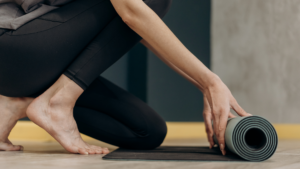Our knees are remarkable joints that bear the weight of our bodies and facilitate movement, allowing us to walk, run, jump, and engage in various physical activities. However, knee problems are common, affecting people of all ages and lifestyles. Whether you’re an athlete, a fitness enthusiast, or someone who simply wants to preserve knee health, there are several strategies you can implement to improve and maintain the strength and functionality of your knees. Let’s explore some essential tips for promoting better knee health:
Stay Active with Low-Impact Exercises:
Engaging in regular physical activity is crucial for overall health, including the health of your knees. However, high-impact activities like running and jumping can put excessive strain on the knees, leading to wear and tear over time. Instead, opt for low-impact exercises such as swimming, cycling, walking, or using an elliptical machine. These activities provide cardiovascular benefits without subjecting your knees to unnecessary stress.
Build Strength in the Muscles Surrounding the Knees:
Strengthening the muscles around the knees can help provide support and stability to the joint, reducing the risk of injury and improving overall knee health. Focus on exercises that target the quadriceps, hamstrings, calves, and hip muscles. Squats, lunges, leg presses, calf raises, and hip abduction exercises are excellent choices for building strength in these muscle groups.
Maintain a Healthy Weight:
Excess body weight puts added pressure on the knees, increasing the risk of osteoarthritis and other knee problems. Maintaining a healthy weight through a balanced diet and regular exercise can help alleviate strain on the knees and reduce the likelihood of developing knee-related issues. Consult with a healthcare professional or a registered dietitian to develop a personalized nutrition plan that supports your overall health and weight management goals.
Practice Proper Body Mechanics:
Pay attention to your posture and body mechanics during everyday activities and exercise. Avoid activities that involve sudden or repetitive twisting motions of the knees, as these movements can strain the joint and increase the risk of injury. When lifting heavy objects, use proper lifting techniques and bend your knees instead of your back to reduce stress on the knee joints.
Warm Up and Cool Down Properly:
Before engaging in physical activity, it’s essential to warm up your muscles and prepare your body for exercise. Incorporate dynamic stretches and light cardiovascular activities to increase blood flow to the muscles and joints, reducing the risk of injury. Similarly, after your workout, be sure to cool down with static stretches to help improve flexibility and prevent muscle tightness.
Listen to Your Body and Rest When Needed:
Pay attention to any signs of discomfort or pain in your knees during physical activity. Pushing through pain can worsen existing knee problems and lead to further injury. If you experience persistent knee pain or swelling, it’s essential to rest and give your knees time to heal. Consult with a healthcare professional if you have concerns about knee pain or if symptoms persist.
Incorporate Low-Impact Activities into Your Routine:
High-impact activities such as running and jumping can place excessive stress on the knees, particularly if you have a history of knee problems or injuries. Consider incorporating low-impact exercises such as swimming, cycling, yoga, or Pilates into your fitness routine. These activities provide a challenging workout while minimizing strain on the knees.
Invest in Supportive Footwear:
The shoes you wear can have a significant impact on knee health and overall comfort during physical activity. Choose supportive footwear with adequate cushioning and stability, especially if you participate in activities that involve running or jumping. Replace worn-out shoes regularly to ensure proper support and shock absorption for your knees.
Maintaining strong and healthy knees is essential for overall mobility, function, and quality of life. By incorporating these tips into your lifestyle, you can reduce the risk of knee injuries, alleviate discomfort, and promote long-term knee health. Remember to listen to your body, prioritize proper form and technique during exercise, and seek professional guidance if you have concerns about knee pain or injury. With consistent effort and attention to knee health, you can enjoy an active lifestyle with strong and resilient knees.
Source Credits: adellbridges






